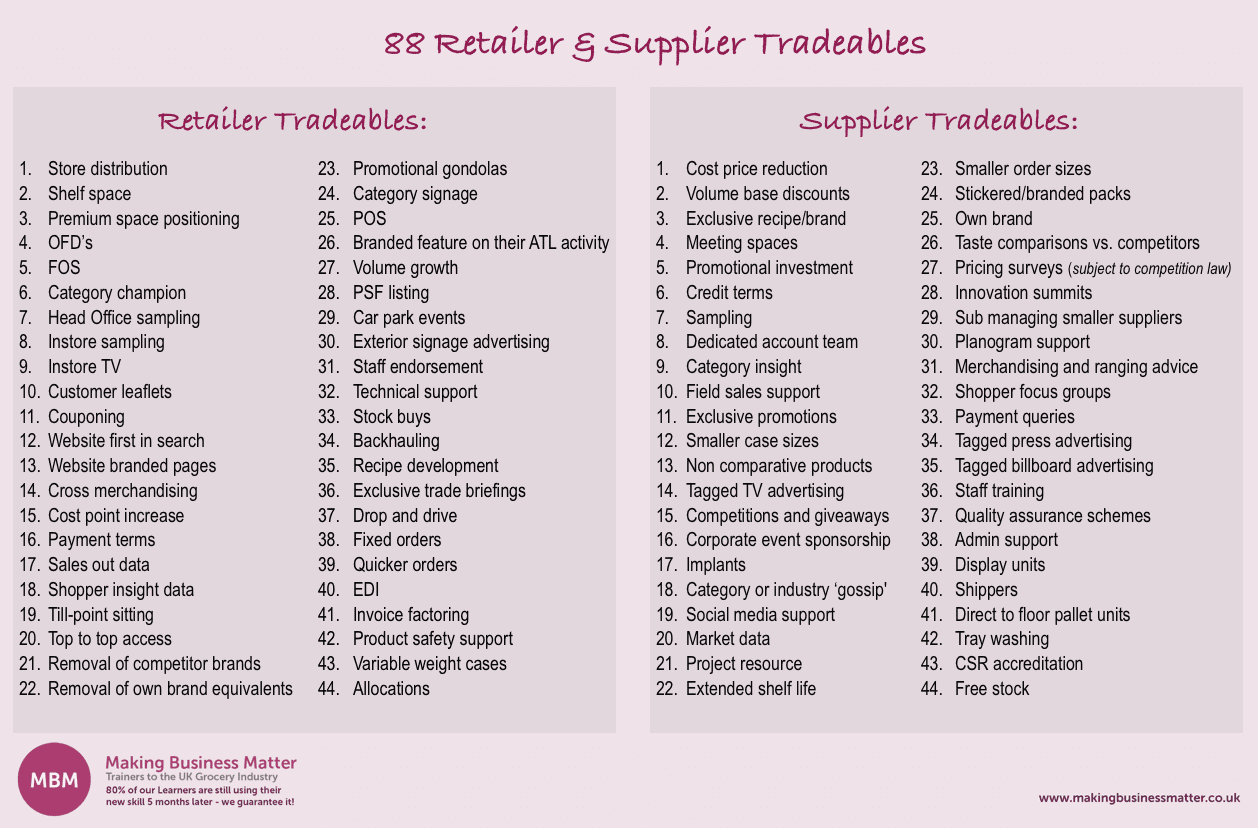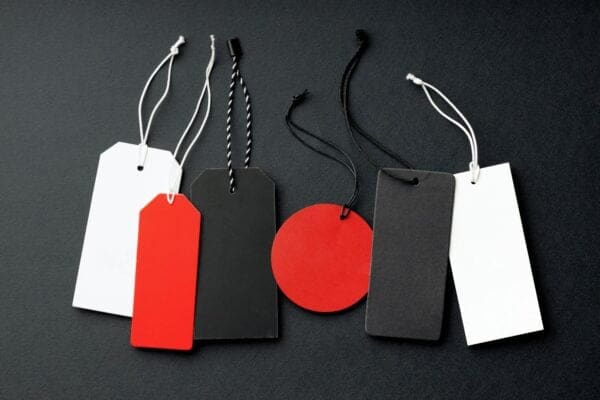Tradeables are the Oil of Negotiating…
Tradeables help smooth and lubricate even the most difficult of negotiations. However, to be crystal clear, they are not concessions or about conceding!
Tradeables are simply the give and take, the bartering that keeps energy in a negotiation.
Often, Tradeables can help bridge the gap between polarised positions within a negotiation. They can help break the deadlock.
Consider, for example, how many desperate political negotiations that do a complete 360°. Those negotiations which are brought back to life at the last minute. By trading a few low-level and unimportant tradeables the parties reach an agreement. They do the impossible.
The two things to consider when planning tradeables for any negotiation are:
- Think of what is important to the other side as well as what is important to you.
- Only ever trade low cost for high value.
So, What are Tradeables in the Grocery Industry?
A tradable is something that is capable of being discussed in an effort to reach an agreement. Below is a list of 88 different retailer and supplier tradeables from your industry. These are the things that might just help you break the deadlock and win:
The items included in the list (above left) are all low cost for the retailer. However, they have or are perceived to have, high value for the supplier. Conversely, the list (above right) includes items that are low cost for the supplier to give, but that the retailer gives high value to.

What Does the List Mean?
The list is by no means exhaustive. There are hundreds of tradeables available across different categories, particularly between sophisticated, technologically advanced, retailers and suppliers. You only have to spend half a day wandering around a retailer’s stores and you will notch up a very long list of things they do that are tradable. This is especially true for categories that you would not usually visit when in ‘work mode’.
The ‘Third’ Rule
When negotiating the final and vital third ‘rule’ of tradeables is to only ever trade conditionally. Remember that you are giving something and, therefore, expect something back in return. Try to preface your trades with the words:
‘If you……..then I………’
This will ensure that you can never accidentally give something away for nothing!
Conditional trading makes it very clear. The receiving party knows what you want and what they will get in return. If you get it the wrong way round, they may take what you are offering and not even hear what you want in return. For instance, try asking a small child:
‘If we go to McDonalds and have a happy meal and then go and see your favourite film and then have ice cream will you tidy your messy bedroom?’
I think we can all guess what the outcome will be!
Action: For even more useful content on negotiations, check out our ultimate guide on negotiation skills.




